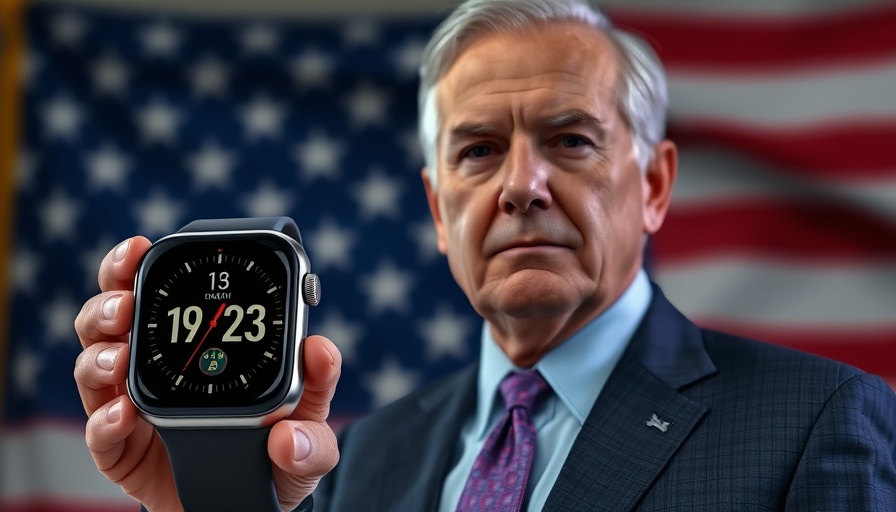
A Bold Vision for Health: Wearables for All
In a groundbreaking move, Robert F. Kennedy Jr., the Secretary of Health and Human Services, is pushing for a future where every American wears a health-monitoring device. This initiative, part of his ambitious "Make America Healthy Again" campaign, seeks to empower individuals to take charge of their health with technology that tracks vital metrics like heart rate, sleep patterns, and stress levels. With current wearables already providing insights that can help users make informed lifestyle choices, the goal is not only ambitious but reflects a growing movement towards digital health.
The Rise of Wearable Technology
By 2020, about 21% of Americans reported using a smartwatch or fitness tracker, a number that continues to rise. Today, brands like Garmin, Apple, and Fitbit are leading the market with devices that go beyond counting steps. For instance, the Garmin Venu Sq 2 offers comprehensive tracking capabilities, from heart health to stress management, making it ideal for users seeking to improve their wellness. As these devices become more affordable—especially during events like Amazon's Prime Day—access to health-tracking technology is increasing, allowing even the most budget-conscious to join the trend.
Benefits and Risks of Wearable Devices
While wearables enable increased self-awareness and motivation for physical activity, experts warn against overstating their potential. Dr. David McManus, a digital medicine expert, cautions that merely owning a wearable doesn't guarantee healthier habits. Behavioral changes require commitment, and the effectiveness of wearables can vary based on individual circumstances. Moreover, privacy concerns over the vast amounts of personal data generated by such devices pose serious risks—recent data breaches have shown how easily sensitive information can be compromised.
The Economic Impact of Health Tech
As the health tech market explodes—from a $63 billion fitness tracker industry to a growing glucose monitoring sector—there are significant economic implications. Efforts to make wearables accessible align with historical government health campaigns, reminiscent of those initiated during President John F. Kennedy's era aimed at promoting public fitness. However, critics argue that even with advanced technology, inherent issues remain, including the risk of promoting unhealthy body images or anxiety stemming from constant self-monitoring.
Call to Action: Empower Your Health Journey
As we navigate these emerging health technologies, it’s vital for individuals and caregivers, especially those in Muskegon, to stay informed about the latest innovations and consider how wearables can enhance overall wellness. Don’t miss out on current deals during Prime Day, which make this technology more accessible than ever. Whether you're exploring fitness solutions for personal use, caregiving, or patient monitoring, the right wearable could be a game-changer on the path to better health.
 Add Row
Add Row  Add
Add 




Write A Comment